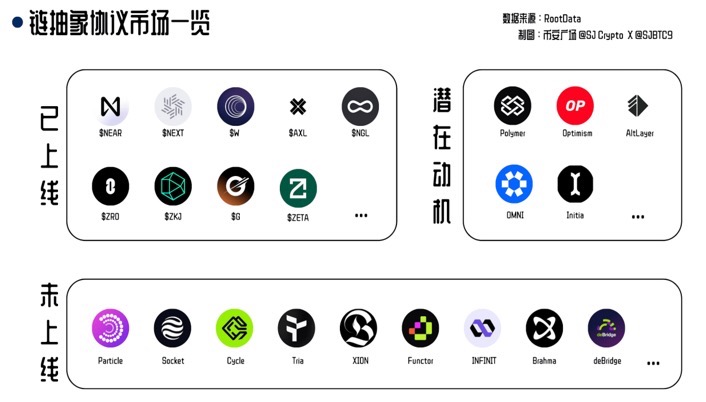
In relazione alle monete
Calcolatore dei prezzi
Storico dei prezzi
Previsione del prezzo
Analisi tecnica
Guida all’acquisto di monete
Categoria di crypto
Calcolatore di profitto

Prezzo di GasGAS
Come ti senti oggi in merito a Gas?
Prezzo di Gas oggi
Qual è il prezzo più alto di GAS?
Qual è il prezzo più basso di GAS?
Previsione del prezzo di Gas
Quando è il momento giusto per acquistare GAS? Dovrei acquistare o vendere GAS ora?
Quale sarà il prezzo di GAS nel 2026?
Quale sarà il prezzo di GAS nel 2031?
Storico dei prezzi di Gas (EUR)
 Prezzo più basso
Prezzo più basso Prezzo più alto
Prezzo più alto 
Informazioni sul mercato Gas
Storico della capitalizzazione di mercato di Gas
Mercato Gas
Saldo di Gas per concentrazione
Indirizzi Gas per durata dell'holding

Valutazioni di Gas
A proposito di Gas (GAS)
加密货币燃气(Gas)在加密货币领域中扮演了重要的角色。作为一个与以太坊区块链相关的货币,它具有独特的功能和特点。燃气是指在以太坊网络中执行智能合约操作时所需的计算资源成本单位。在交易和智能合约执行过程中,使用燃气可以保障网络效率和安全。
由于燃气的存在,以太坊网络的用户可以按照复杂程度和计算资源使用量支付相应费用。这种设计使得网络资源能够被合理分配,并防止滥用、垃圾信息和攻击行为对网络造成的影响。
燃气价格的确定是基于以太坊网络的供需关系。当网络拥塞时,燃气价格会上升,以获取更多的计算资源来完成交易和智能合约的执行。相反,当网络不拥塞时,燃气价格相对较低。
燃气在以太坊智能合约中的功能不仅限于支付费用,它还可以控制智能合约的执行速度和资源消耗。燃气价格和燃气限制两者一起定义了以太坊网络的执行能力和效率。
燃气的重要性还体现在它对网络攻击的抵御能力上。高燃气价格可以阻止网络攻击者通过发送大量交易或执行复杂的智能合约来消耗网络资源,从而保护以太坊网络的稳定性和安全性。
虽然燃气是以太坊网络中不可或缺的一部分,但也引发了一些争议。有些人认为燃气价格过高,限制了普通用户的使用,而有些人则认为通过燃气费用的支付,可以保证网络的可持续发展和安全性。
总而言之,加密货币燃气在以太坊网络中发挥着重要的作用。它不仅保障了网络效率和安全,还通过价格机制控制了网络资源的使用。虽然有争议,但燃气的存在为以太坊网络的发展和稳定做出了贡献。
GAS a valuta locale
- 1
- 2
- 3
- 4
- 5
Come acquistare Gas(GAS)

Crea il Tuo Conto Bitget Gratuito

Verifica il Tuo Conto

Converti Gas in GAS
Fai trading sui futures perpetui GAS
Dopo essersi registrati con successo su Bitget e aver acquistato i token USDT o GAS, puoi iniziare a fare trading sui derivati, compresi i futures GAS e il trading con margine, per aumentare i tuoi rendimenti.
Il prezzo attuale di GAS è €1.87, con una variazione di prezzo in 24 ore di +0.80%. I trader possono trarre profitto sia andando long che short sui futures GAS.
Partecipa al copy trading di GAS seguendo i trader d’élite.
Notizie su Gas




Bitget ha lanciato i futures GASUSDT il 19 luglio, 2024 (UTC+2) con una leva massima di 50x. Prova il trading di futures tramite il nostro sito ufficiale (www.bitget.com) o l'APP Bitget. Futures Perpetui GASUSDT-M Parametri Dettagli Data del listing 19 luglio 2024 alle ore 18:05 (UTC+8) Asset sotto
Nuovi listing su Bitget
Acquista di più
FAQ
Qual è il prezzo attuale di Gas?
Qual è il volume di trading di 24 ore di Gas?
Qual è il massimo storico di Gas?
Posso acquistare Gas su Bitget?
Posso ottenere un guadagno costante investendo in Gas?
Dove posso acquistare Gas con la commissione più bassa?
Dove posso acquistare Gas (GAS)?
Sezione video: verifica rapida e accesso rapido al trading

Bitget Insights





Asset correlati



































Dati social di Gas
Nelle ultime 24 ore, il punteggio riguardo l’opinione generale sui social media per Gas è stato 3, e l’opinione generale sui social media verso l'andamento dei prezzi di Gas è stato Rialzista. Il punteggio complessivo di Gas sui social media è stato di 0, collocandosi al 753° posto tra tutte le criptovalute.
Secondo LunarCrush, nelle ultime 24 ore le criptovalute sono state menzionate sui social media per un totale di 1,058,120 volte, con Gas che è stato menzionato con un rapporto di frequenza pari al 0.01%, posizionandosi al 366° posto tra tutte le criptovalute.
Nelle ultime 24 ore, ci sono stati in totale 656 utenti unici che hanno discusso di Gas, con un totale di 67 menzioni riguardo Gas. Tuttavia, rispetto alle 24 ore precedenti, il numero di utenti unici ha avuto un/una Incremento del 53%, inoltre il numero totale di menzioni ha avuto un/una diminuzione del 18%.
Su X, c'è stato un totale di 1 tweet che hanno menzionato Gas nelle ultime 24 ore. Tra questi, il 0% è rialzista su Gas, il 100% è ribassista su Gas ed il 0% è neutrale su Gas.
Su Reddit, ci sono stati 2 post che hanno menzionato Gas nelle ultime 24 ore. Rispetto al precedente periodo di 24 ore, il numero di menzioni ha avuto un/una diminuzione del 0%.
Panoramica su tutti i social
3